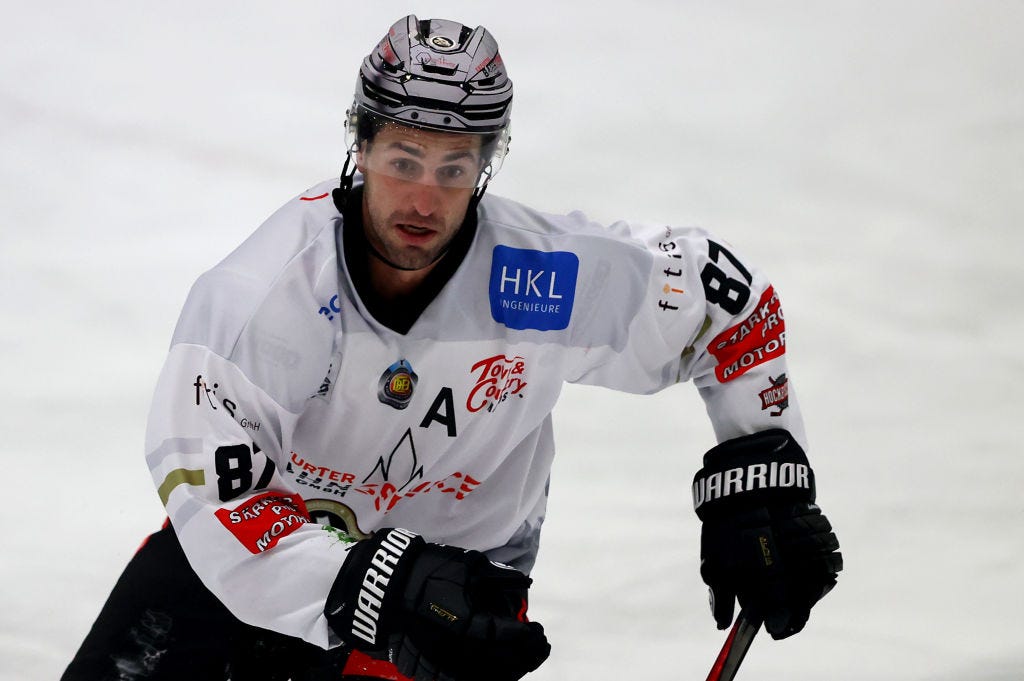Kyle Beach and the case of the broken telephone
Just because an NHLPA-retained law firm found no legal wrongdoing in the ugliest scandal in hockey history doesn't for one minute mean that multiple people did not screw up. Kyle Beach was failed

If you take the time to read the Cozen O’Connor report into the NHL Players’ Association’s response to Kyle Beach’s sexual assault allegations against Brad Aldrich, ask yourself the following question: What would have happened if Kyle Beach had been an established NHL player who contacted the union about his signing bonus money being delayed and not a non-member prospect reaching out for help in a much less palatable issue?
You have to wonder if so many people would have forgotten so many conversations. You’d also have to wonder if those in authority at so many levels would have simply assumed someone else was going to take care of it. Or why someone, anyone, didn’t simply pick up the phone and report what was clearly a crime to someone in authority. Because if someone had, Brad Aldrich would have been stopped in his tracks, which would have prevented him from coaching high school hockey in Michigan and assaulting another young hockey player.
The report, which was made public by the NHLPA Friday, really doesn’t give us any further indication of what actually went down between Beach and those in positions of authority with the NHLPA when Beach went to the union with his allegations more than a decade ago. What this report does tell us is that all of this can be chalked up to a “miscommunication and understanding, rather than any individual or systemic failure.”
Again, ask yourself if there would have been so many miscommunications or failures to understand if millions of dollars had been at stake. Is there any way the telephone would have been this badly broken? Would those who investigated this whole thing have been just a little more willing to look behind the statements that were made to them?
According to the report, NHLPA executive director Donald Fehr has no recollections of conversations with agents Ross Gurney and Joe Resnick, conversations that at the very least should have raised a number of red flags. And apparently that’s OK. And according to the report, Dr. Brian Shaw, a psychologist and administrator with the NHL/NHLPA Player Assistance Program, the person to whom Beach made his allegations concerning Aldrich, was allowed, nay obliged, to honor patient-client privilege by not revealing its contents to a third party without Beach’s consent. The report also found that Dr. Shaw was reasonable in assuming that someone else would have notified USA Hockey about Aldrich, who was working with the American team at the 2011 World Women’s Under-18 Championship at the time. And that seems to be OK, too.
But at some point, doesn’t someone have to say, ‘Yeah, but come on’? Here is how the Cozen O’Connor report summed up the actions, or inactions, of those who were involved:
That’s a stunning amount of miscommunication, a mind-boggling level of misunderstanding and remarkable level of assumption. And just because people insist they cannot remember something happening doesn’t mean it didn’t happen. Fehr can fail to recall his conversations with Gurney and Resnick (Resnick doesn’t remember the conversation, either) until the cows come home, but there is irrefutable evidence that those conversations occurred. Dr. Shaw can claim that Kyle Beach was an adult who was refusing treatment and that he was respecting Beach’s privacy, but the fact remains that Dr. Shaw reassured Beach that someone – either someone from the NHLPA or Beach’s agent – would contact USA Hockey about Aldrich. That sure sounds like someone who knew that people in authority at the NHLPA knew exactly how serious things were and had no reason to believe that someone was not going to take action.
None of this is good enough. Chances are that Beach did not allow investigators to interview him because he was likely counselled not to do so because he would have potential litigation against the NHLPA because, remember, he has only settled with the Chicago Blackhawks. And if that happens, all of this will be revisited. It almost seems as though this report is a placeholder for future litigation rather than an actual exoneration of those who were involved.
Because their inaction had very, very serious consequences for a young hockey player in Michigan. And if they didn’t have a legal responsibility to be more proactive when it came to Kyle Beach, they had a moral one.





